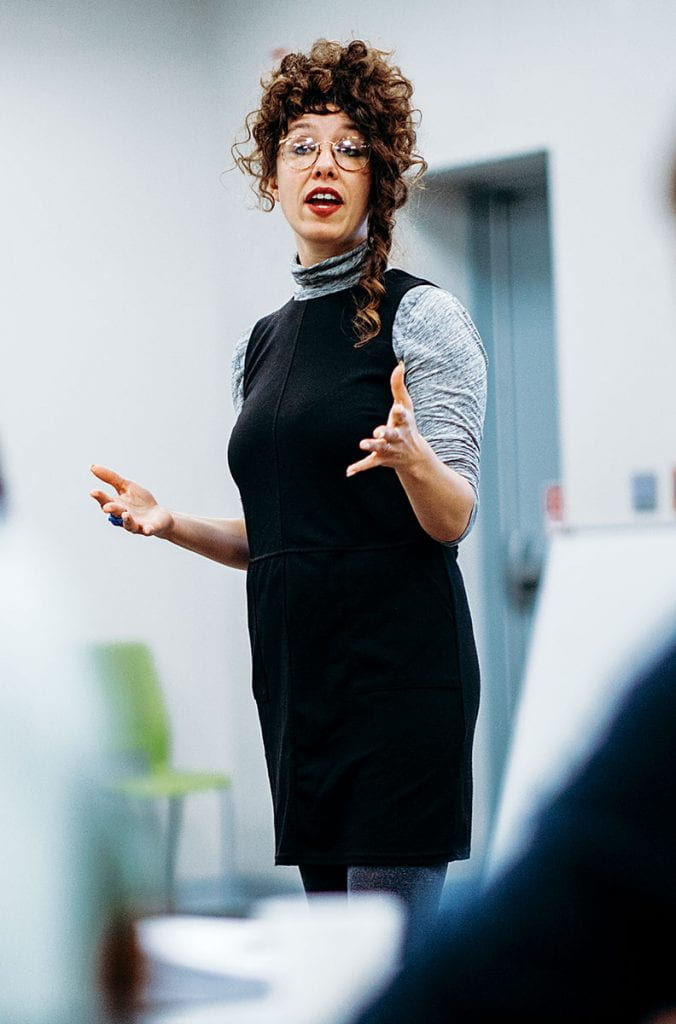Scholar Power: Dr. Thea Riofrancos, assistant professor of political science

“Nothing pleases me more than to witness students taking on the challenge of understanding politics, from the local to the global — and seeing themselves as agents of political change.”
Dr. Thea Riofrancos
Highest Degree: Ph.D. in political science, University of Pennsylvania
Expertise: climate change, renewable energy, resource and environmental politics, Latin America, Chile, Ecuador, social movements, radical democracy, participatory institutions
Newsworthy: In May, Riofrancos was named a 2020 Andrew Carnegie Fellow — one of 27 scholars or writers to receive stipends of up to $200,000 over two years to support research on the world’s most intractable problems. In addition, she was selected as a 2020-21 fellow of the Radcliffe Institute for Advanced Study at Harvard University. With these two fellowships, Riofrancos will travel to Chile and China for her project, Brine to Batteries: The Extractive Frontiers of the Global Energy Transition.
Last year, Riofrancos co-authored A Planet to Win: Why We Need a Green New Deal with Kate Aronoff, Alyssa Battistoni, and Daniel Aldana Cohen. This summer, Duke University Press will publish her book, Resource Radicals: From Petro-Nationalism to Post-Extractivism in Ecuador.
UPDATE: In 2021, Resource Radicals was awarded the Charles Taylor Book Award, named for the distinguished political philosopher, which recognizes “the best book in political science that employs or develops interpretive methodologies and methods.”
Quotable: “The classroom is one example of what Alexis de Tocqueville called ‘schools of democracy.’ Nothing pleases me more than to witness students taking on the challenge of understanding politics, from the local to the global — and seeing themselves as agents of political change.”
Hobbies: Political activism, cooking, cycling, exploring Rhode Island’s beaches
Years at PC: 5
Hobbies: Political activism, cooking, cycling, exploring Rhode Island’s beaches
2020 Andrew Carnegie Fellowship Radcliffe Institute for Advanced Study Fellowship Foreign policy book review




